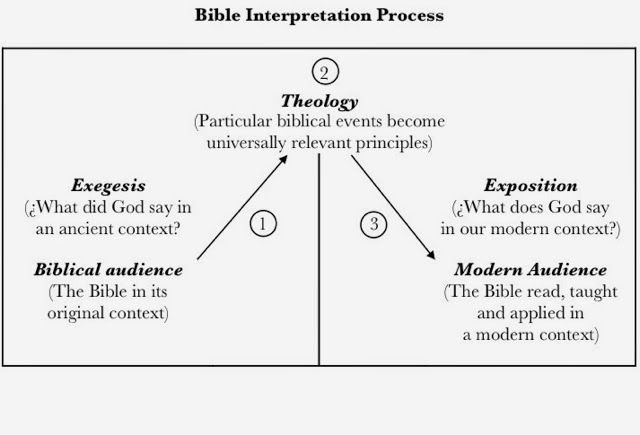· Biblical Studies · 6 min read
Unveiling Christ: Resurrection Evidence, Miracles Today & Jesus' Core Teachings
Discover compelling evidence of Christ's resurrection, modern-day miracles, and Jesus' timeless teachings in this enlightening exploration of Christianity's core principles.

Unveiling Christ: Resurrection Evidence, Miracles Today & Jesus’ Core Teachings
Introduction
The resurrection of Jesus Christ is a foundational event in Christianity. It serves as the bedrock of the faith, validating Jesus’ claims to be the Son of God and providing hope for believers in eternal life. In this article, we will explore the historical evidence for Jesus’ resurrection, discuss the relevance of biblical miracles in today’s world, and delve into the core teachings of Jesus.
1. What is the historical evidence for Jesus’ resurrection?
The historical evidence for Jesus’ resurrection is compelling and has been extensively studied by scholars. One of the key pieces of evidence comes from the New Testament itself, specifically from the writings of the apostle Paul. In 1 Corinthians 15:14, Paul emphasizes the central importance of Jesus’ resurrection to the Christian faith, stating that “if Christ has not been raised, then our preaching is futile and your faith is empty.” This statement highlights the significance early Christians placed on the historical reality of Jesus’ resurrection.
Scholars such as William Lane Craig, J.P. Moreland, and Gary Habermas have meticulously examined the historical evidence for Jesus’ resurrection and have presented strong arguments in its favor. They have pointed to multiple lines of evidence, including the empty tomb, eyewitness testimony, and the transformation of Jesus’ disciples. The empty tomb is supported by accounts in the Gospels where women discover that Jesus’ tomb is empty on the third day after his crucifixion. Eyewitness testimony comes from various individuals who claimed to have seen Jesus alive after his death, including his disciples and others mentioned in the New Testament.
2. How do biblical miracles relate to modern-day experiences?
Biblical miracles play a significant role in establishing the divinity of Jesus and affirming his teachings. They serve as supernatural signs that validate his authority and power. While some may question the relevance of miracles in today’s world, it is important to consider the purpose and significance of these miraculous events.
Miracles in the Bible were not simply displays of power; they had a deeper meaning and purpose. They were acts of compassion, signs of God’s kingdom breaking into the present age, and demonstrations of Jesus’ identity as the Son of God. The miracles performed by Jesus served to alleviate suffering, demonstrate his authority over nature and illness, and reveal the nature of God’s love for humanity.
Today, many Christians continue to believe in the possibility of miracles. They view them as acts of God’s intervention in the world, often occurring in response to prayer or as a result of faith. While some miracles may be attributed to natural phenomena or psychological factors, there are instances where inexplicable events defy scientific explanation. These experiences serve to strengthen faith and provide a personal encounter with the divine.
3. What were Jesus’ core teachings?
Jesus’ core teachings encompassed a wide range of topics, but several key principles stand out. At the heart of his teachings was the message of the kingdom of God. Jesus proclaimed that the kingdom of God was at hand, calling people to repentance and faith in him as the Messiah. He taught that this kingdom was not an earthly political entity but a spiritual reality that would bring about salvation, restoration, and eternal life.
Central to Jesus’ teachings was the commandment to love God with all one’s heart, soul, mind, and strength, and to love one’s neighbor as oneself. He emphasized the importance of loving others unconditionally, even those who are considered enemies. Jesus also taught about forgiveness, urging his followers to forgive others just as they have been forgiven by God.
Jesus’ teachings often challenged conventional wisdom and cultural norms. He spoke against hypocrisy, pride, materialism, and religious legalism. He emphasized humility, selflessness, and the pursuit of righteousness. Jesus taught that true greatness is found in serving others and that the path to eternal life involves self-sacrifice and surrendering one’s life to God.
4. How do Jesus’ teachings apply to our lives today?
The teachings of Jesus continue to hold relevance and practical application in the lives of believers today. His emphasis on love, forgiveness, humility, and service provides a framework for living a meaningful and purposeful life. By following his teachings, individuals can experience personal transformation and contribute to the well-being of their communities.
Jesus’ commandment to love one’s neighbor challenges us to extend kindness, compassion, and care to those around us, regardless of their background or circumstances. It calls us to embrace diversity, seek reconciliation, and work towards justice and equality.
His teachings on forgiveness remind us of the power of grace and the need to let go of resentment and bitterness. Forgiveness not only brings healing and restoration to relationships but also frees us from the burden of carrying grudges.
Jesus’ teachings on humility encourage us to have a proper perspective of ourselves and others. They remind us that true greatness is found in serving others rather than seeking personal recognition or status.
Ultimately, Jesus’ teachings invite us to live a life characterized by love, integrity, compassion, and selflessness. They provide a moral framework that guides our actions and decisions, enabling us to navigate the complexities of life with wisdom and grace.
5. How does the resurrection impact our understanding of Jesus’ teachings?
The resurrection of Jesus serves as a powerful affirmation of his teachings. It validates his claims to be the Son of God and demonstrates his victory over sin and death. The resurrection affirms that Jesus’ teachings are not mere philosophical ideas or moral guidelines but are rooted in divine truth.
The resurrection gives credence to Jesus’ promise of eternal life for those who believe in him. It assures believers that death is not the end but a transition into a new and glorious existence in God’s presence. This hope of resurrection provides comfort and strength in times of grief and serves as a motivation to live out Jesus’ teachings faithfully.
Furthermore, the resurrection serves as a sign that Jesus’ sacrifice on the cross was effective in reconciling humanity to God. It validates the forgiveness of sins and offers the assurance of salvation to those who put their trust in Jesus.
Conclusion
The historical evidence for Jesus’ resurrection, the relevance of biblical miracles today, and the core teachings of Jesus are critical aspects of the Christian faith. The resurrection serves as a cornerstone, affirming Jesus’ divinity and providing hope for believers. Biblical miracles demonstrate God’s power and love, while Jesus’ teachings offer guidance for living a life of love, forgiveness, humility, and service. Embracing these truths can lead to personal transformation and contribute to a more compassionate and just society. As Christians, we are called to study these foundational elements of our faith, embrace them in our lives, and share their significance with others.



